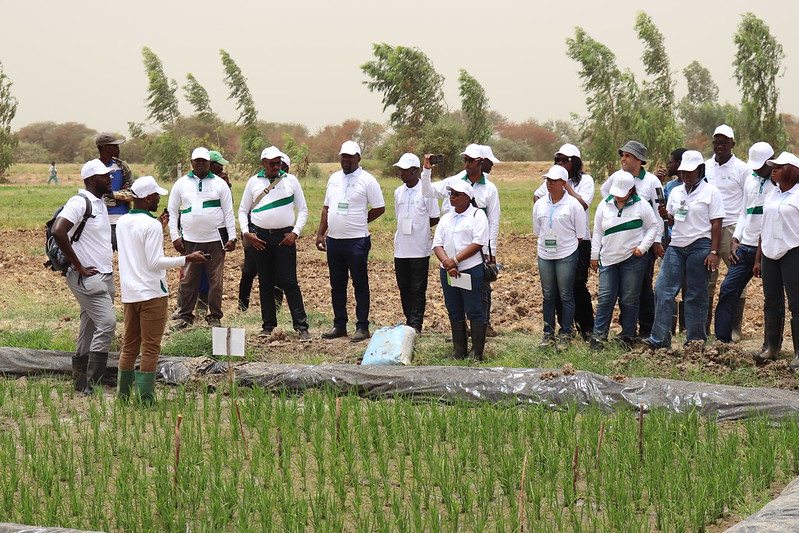By Ken Koutchakpo
Africa Rice Centre (AfricaRice) and G20 Global Land Initiative, in collaboration with leading global partners, have launched a landmark five-day workshop on “Building Resilient Landscapes: Sustainable Land Management and Restoration for Africa’s Agricultural Future” at its Regional Training Centre in Saint Louis, Senegal.
The workshop, which holds from 21st to 25th April 2025, brings together 30 experts, practitioners, policymakers, and community leaders from across Africa and beyond to tackle one of the continent’s most pressing challenges: land degradation and its impact on food security.
Sub-Saharan Africa, home to over 80% of smallholder farmers and facing severe land erosion, nutrient loss, and climate stress, urgently needs sustainable solutions.
With the region projected to support 35% of the world’s population by 2100, the stakes could not be higher. Over 70% of SSA’s lands are degraded, and by 2050, 86 million people may be forced to migrate due to land and climate pressures (World Bank, 2021).
The high-level workshop is designed to address these urgent challenges by equipping participants with the knowledge, tools, and skills needed to design and implement sustainable landscape management and restoration practices.
Over the course of five days, participants will explore cutting-edge approaches, including climate-smart agriculture, gender-responsive policy frameworks, and digital innovations for land restoration.
The training combines classroom sessions at AfricaRice Saint Louis with field visits in the Senegal River Valley, allowing participants to engage directly with successful local restoration initiatives and farmers on the frontlines of sustainable agriculture.

“This workshop is more than just training — it’s about building the foundations for Africa’s agricultural resilience in the face of land degradation and climate change,” said Dr. Elliott Dossou-Yovo, Workshop Lead at AfricaRice.
“By empowering researchers, extension agents, and local leaders, we aim to transform agricultural landscapes across the region”, he added.
Highlights:
- Five interactive modules covering resilient landscapes, restoration tools, climate-smart management, gender inclusion, and policy frameworks.
- Field-based learning with visits to best-practice restoration sites in the Senegal River Valley.
- Cross-country knowledge exchange among experts from 25 African nations and 5 international participants.
- Focus on scaling up sustainable land practices that support food security, biodiversity, and livelihoods for millions, especially smallholders, women, and youth.
The workshop aligns with Africa’s broader goals of achieving climate resilience, sustainable food systems, and economic growth through restored agricultural landscapes. It also supports the work of CGIAR and national agricultural systems in delivering science-based solutions for development impact.









